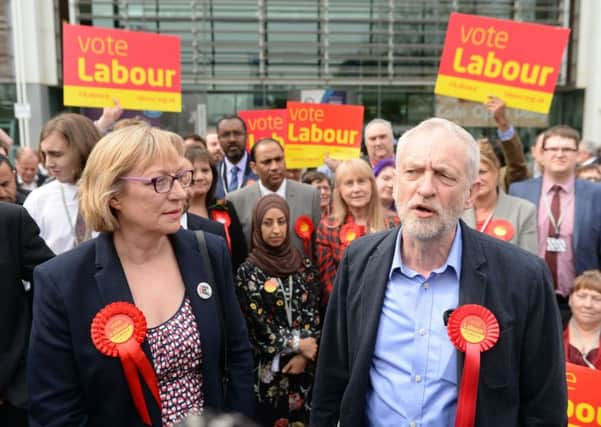YP Comment: Complacency is election winner. Tories and Labour underwhelm


It would be churlish not to acknowledge the fact that the Conservatives only lost a handful of council seats – mid-term elections normally see the ruling party’s council candidates punished by the hundred.
Yet it would be unwise of Mr Cameron to glean too much smug satisfaction from Thursday’s results. Given the political fallout from a Budget which betrayed the disabled, and the fact that Ministers are effectively at war with each other over the upcoming EU referendum, the Tories owe their result to Labour’s lack of electoral credibility under Jeremy Corbyn.
Advertisement
Hide AdAdvertisement
Hide AdEven though Labour put on a brave face and pointed out that the party had increased its share of the vote compared to May 7, 2015, with Gill Furniss succeeding her late husband Harry Harpham as MP for Sheffield Brightside and Hillsborough and also Sadiq Khan becoming Mayor of London, this needs to be seen in wider context.
Even though Labour put on a brave face and pointed out that the party had increased its share of the vote compared to May 7, 2015, and seen Gill Furniss succeed her late husband Harry Harpham as MP for Sheffield Brightside and Hillsborough, this needs to be seen in wider context.
With the greatest respect to Mr Corbyn’s predecessor Ed Miliband, it is indicative of the Opposition’s lack of ambition – and realism – that the poll performances of the Doncaster North MP are now the party’s benchmark when he led Labour to its worst election defeat in three decades.
This week’s results should also be set against the 1982 local elections, the first that Michael Foot as Labour leader. Even though the a Task Force had set sail to the South Atlantic to liberate the Falklands, his party still managed to make 988 gains.
Advertisement
Hide AdAdvertisement
Hide AdAnd Labour – it should be remembered – were a major force in Scottish politics, one of the party’s traditional heartlands, under Mr Foot. Now it has slumped to a remote third after the Conservatives emerged as the main opposition to the Scottish Nationalists.
Though the reasons for this could be allied to the anti-Semitism row that has engulfed Labour, and people in predominantly rural areas voting tactically to lessen the likelihood of a second referendum on Scottish independence, the fact that the SNP and Nicola Sturgeon were denied the outright majority that was being taken for granted is significant. Now dependent on the Greens in order to pass legislation at Holyrood, perhaps the one saving grace is that it will be harder for Ms Sturgeon to hold the rest of Britain to ransom over independence.
However, this does not excuse the poor performance of the main parties. The Conservatives should have done even better against such a dysfunctional Opposition party. Yet, perversely, the same charge can be levelled against Labour – the fallout from the Budget provided Mr Corbyn with an open goal which he missed spectacularly.
As such, the only conclusive outcome is that both the Conservatives and Labour need to raise their respective games and halt the complacency which is in danger of becoming corrosive. Britain needs a strong Government at a time of economic instability and global uncertainty. It also needs a strong Opposition which is capable of holding Ministers to account. This week’s results suggest that the country has neither.
Broadband for all: Basic right of rural residents
Advertisement
Hide AdAdvertisement
Hide AdMINISTERS could not have been clearer about the importance of a “vibrant rural economy” in a recent House of Lords debate on countryside matters that was initiated by Anne McIntosh, the former North Yorkshire MP and ex-chairman of Parliament’s environment select committee.
Responding on the Government’s behalf, Lord Gardiner said it was “in the national interest” that Ministers unlocked “the enormous opportunities that there still are for the rural economy”. He also went further. Talking about broadband, and “the extraordinary impact that the enhanced connectivity” has brought about in Cornwall, Lord Gardiner said a 0.1 per cent increase in the value of the rural economy would generate an additional £500m a year.
If this is the case, why does the Government now appear to be backtracking on previous commitments to ensure that all rural homes have access to superfast broadband? Though 95 per cent of properties are due to have a basic connection by next year, it still leaves the problem of connecting the most remote houses, and farms, to the internet and there will be dismay that a consultation document now raises the vexed question of “value for money”.
A contradiction of Lord Gardiner, it makes a mockery of the need to encouraging families to make their home in the countryside so rural communities – and the farming industry – do not wither away. This smacks of a Government which has little empathy with rural residents or their specific needs. Like a free education and NHS on, a 21st century digital first economy requires broadband for all.